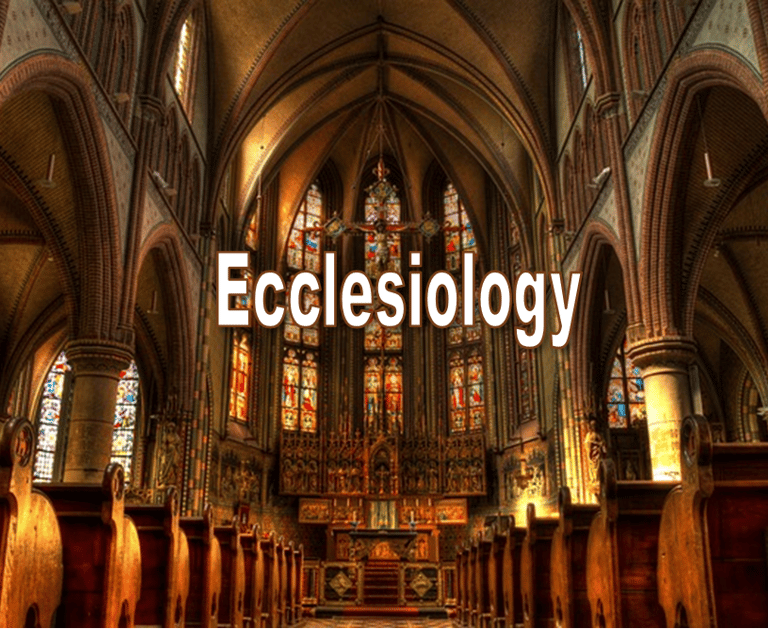Christian Ecclesiology is the theological study of the nature, purpose, and structure of the Church within the Christian faith. Rooted in biblical teachings and traditions, Ecclesiology explores the role of the Church in God's redemptive plan and its function as a community of believers. It delves into questions of Church leadership, sacraments, worship, and the Church's mission in the world.
As believers engage with Ecclesiology, they gain insights into the significance of the Church as the Body of Christ, with Christ as its head, and are encouraged to actively participate in the communal life and mission of the Church.





Ecclesiology
Ecclesiology is the study of the church from a Christian theological perspective. It examines the nature, function, and organization of the church, as well as its role in the salvation plan of God. Central to Christian ecclesiology is the belief that the church is not merely a human institution but a divine entity established by Jesus Christ, which serves as the body of Christ on earth and the community of all believers.
Matthew 16:18 is pivotal in ecclesiology, where Jesus says, "And I tell you that you are Peter, and on this rock I will build my church, and the gates of Hades will not overcome it." This scripture underscores the foundational role of Jesus in establishing the church and His promise of its ultimate triumph. It emphasizes that the church is built on the revelation of Jesus as the Christ, the Son of the living God, and it will endure despite opposition.
Ephesians 4:11-12 further explains the church's structure and purpose: "So Christ himself gave the apostles, the prophets, the evangelists, the pastors and teachers, to equip his people for works of service, so that the body of Christ may be built up." This passage outlines the diversity of roles within the church, each aimed at strengthening and equipping believers to fulfill their calling. The concept of the church as the "body of Christ" highlights the interconnectedness and interdependence of all members, working together under Christ, the head of the church.
Ecclesiology also encompasses baptism, church governance and the mission of the church, which includes worship, ministry to believers, and evangelism. Through these activities, the church lives out its calling as the primary means by which God chooses to relate to and redeem the world, fostering a community of faith that is both a sign and instrument of the Kingdom of God.
